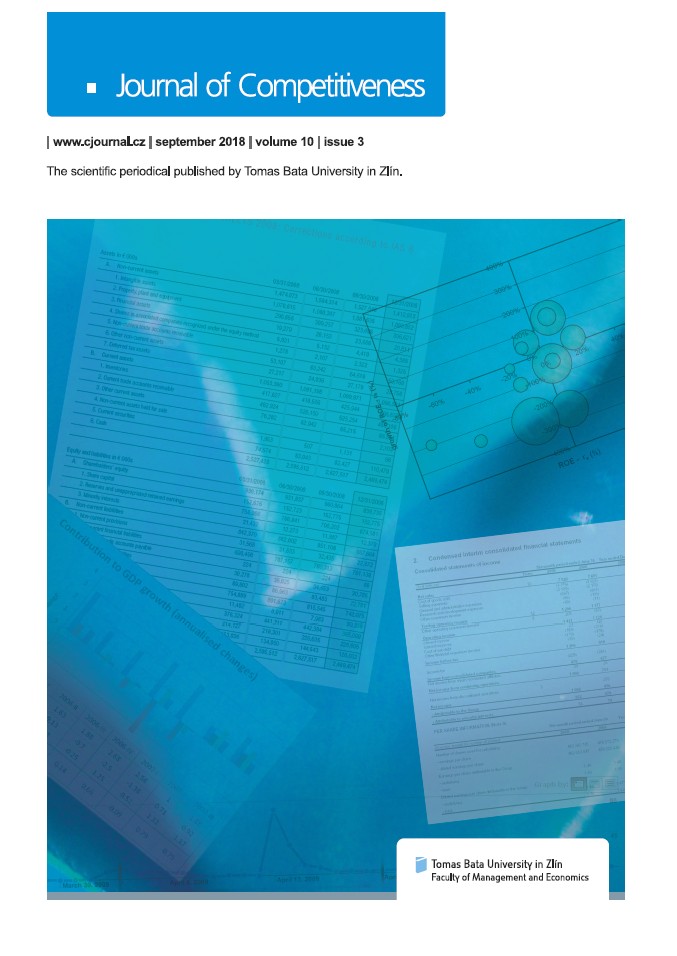The Impact of Proactive Environmental Strategy on Competitive and Sustainable Development of Organizations
IF 4.4
1区 管理学
Q2 BUSINESS
引用次数: 15
Abstract
The purpose of this research is to evaluate the impact of proactive environmental strategy, competitive differentiation advantage & cost-leadership competitive advantage for the competitive, sustainable development of an organization in terms of its performances, for instance, product strategy, production, process & financial performances. We incorporated technological eco-innovation as a mediating factor & corporate image as a moderator between exogenous & endogenous variables. We have collected 798 responses from China, India, Pakistan, Bangladesh, United Arab Emirates, and Vietnam. For the data analyses, we employed a structural equation modeling-based multivariate approach and conditional process modeling. The novelty and significance of the undertaken study rested in multifaceted outcomes; for instance, the proactive environmental strategy, the competitive advantage of differentiation & competitive advantage of cost leadership have a significant & positive impact on the sustainable development of an organization in terms of its performances, for example, product strategic, production & financial performances. The findings further demonstrate that technological eco-innovation as a mediating factor & corporate image as a moderating factor played vital and significant influencers between exogenous and endogenous variables. Finally, the Toda- Yamamoto causality showed the two-ways directionality between exogenous & endogenous variables. The outcomes have provided critical practical and societal implications for the industry and society. The companies may incorporate the environment as a cornerstone in short & longterm strategies for sustainable development. On the other hand, organizations may provide an eco-friendly environment to society.主动环境战略对组织竞争与可持续发展的影响
本研究的目的是评估主动环境战略、竞争差异化优势和成本领先竞争优势对组织竞争和可持续发展的影响,包括产品战略、生产、流程和财务绩效。我们将技术生态创新作为中介因素,将企业形象作为外生和内生变量之间的调节因素。我们收集了来自中国、印度、巴基斯坦、孟加拉国、阿拉伯联合酋长国和越南的798份回复。对于数据分析,我们采用了基于结构方程建模的多元方法和条件过程建模。所进行的研究的新颖性和重要性在于多方面的结果;例如,积极主动的环境战略、差异化的竞争优势和成本领先的竞争优势对组织的可持续发展产生了显著的积极影响,如产品战略、生产和财务绩效。研究结果进一步表明,技术生态创新作为中介因素,企业形象作为调节因素,在外生变量和内生变量之间发挥着至关重要的影响作用。最后,Toda-Yamamoto因果关系显示了外生变量和内生变量之间的双向指向性。这些成果为行业和社会带来了重要的现实和社会影响。这些公司可能会将环境作为可持续发展的短期和长期战略的基石。另一方面,组织可以为社会提供一个环保的环境。
本文章由计算机程序翻译,如有差异,请以英文原文为准。
求助全文
约1分钟内获得全文
求助全文
来源期刊

Journal of Competitiveness
Multiple-
CiteScore
11.30
自引率
2.70%
发文量
33
审稿时长
12 weeks
期刊介绍:
The Journal of Competitiveness, a scientific periodical published by the Faculty of Management and Economics of Tomas Bata University in Zlín in collaboration with publishing partners, presents the findings of basic and applied economic research conducted by both domestic and international scholars in the English language.
Focusing on economics, finance, and management, the Journal of Competitiveness is dedicated to publishing original scientific articles.
Published four times a year in both print and electronic formats, the journal follows a rigorous peer-review process with each contribution reviewed by two independent reviewers. Only scientific articles are considered for publication, while other types of papers such as informative articles, editorial materials, corrections, abstracts, or résumés are not included.
 求助内容:
求助内容: 应助结果提醒方式:
应助结果提醒方式:


